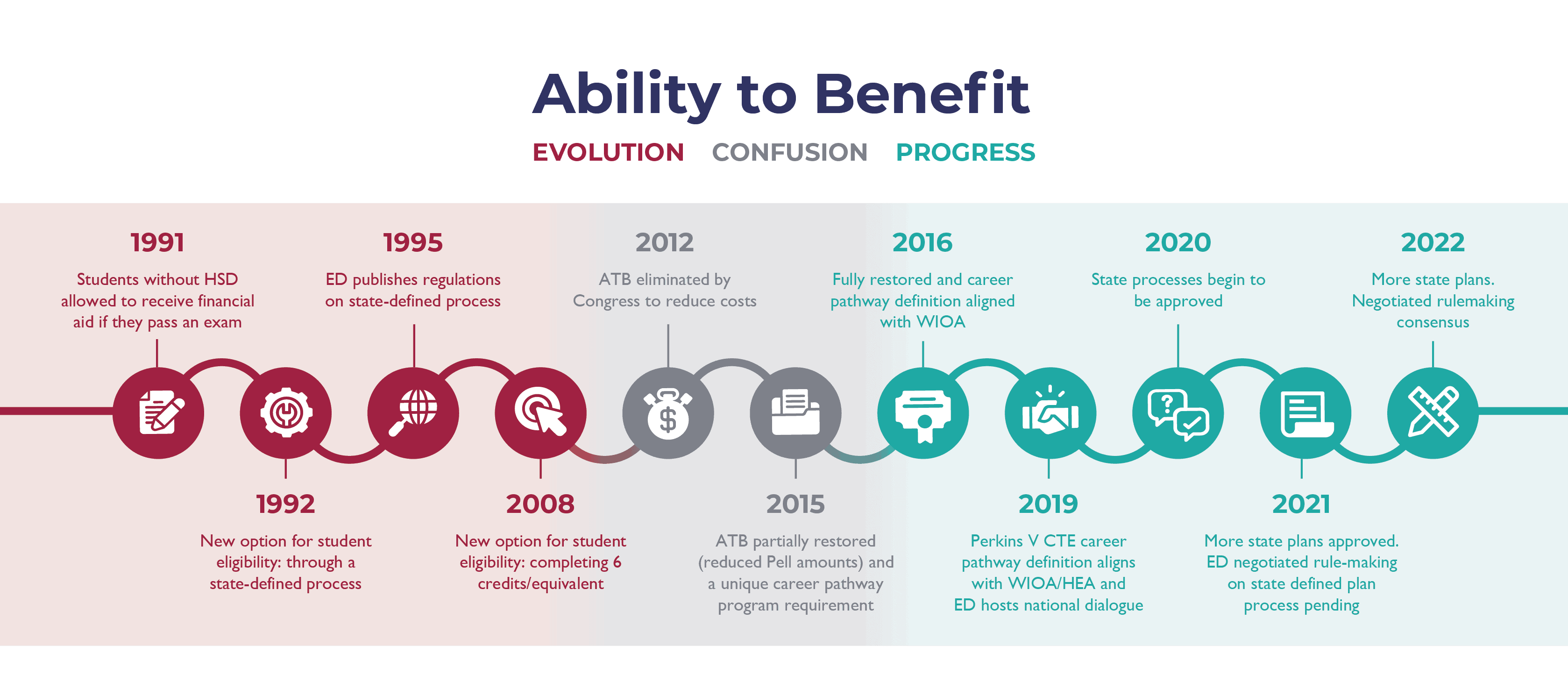The Ability to Benefit (ATB) provision in the Higher Education Act, which gives adults without a high school diploma or equivalent access to federal student aid under certain conditions, is a critical but underutilized strategy for ensuring equitable access to postsecondary education and – by extension – economic stability. Black, Indigenous, and other communities of color are disproportionately impacted by this disparity, making this lever a critical imperative for racial equity as well.
Through Advancing ATB for Equitable Access to Opportunity, World Education will advance the racial equity work of three states participating in the Racial Equity for Adult Credentials in Higher Education (REACH) Collaborative by supporting each state in the creation and implementation of an intentional ATB strategy. The REACH Collaborative, which is led by the Education Strategy Group (ESG) in partnership with the Office of Community College Research and Leadership (OCCRL) at the University of Illinois and DVP-PRAXIS, is focused on transforming credential pathways to associate degrees at community colleges to improve credential attainment and economic mobility for adult learners of color in six states: California, Colorado, New York, North Carolina, Texas, and Virginia. Intentional ATB strategies will align with the Collaborative’s goal of closing equity gaps by increasing systemic access to postsecondary education and better job opportunities for Black, Latino, and Native American adults.
In addition, World Education will build a resource page to house key documents and resources related to ATB, including guides and examples for other states and institutions looking to strengthen their ATB strategies and/or implementation.
This work, as well as the work of the REACH Collaborative, is generously supported by Lumina Foundation.





